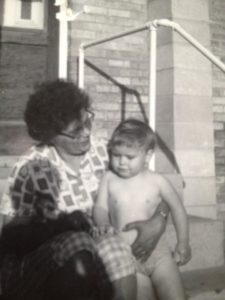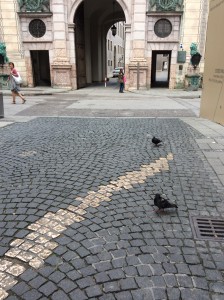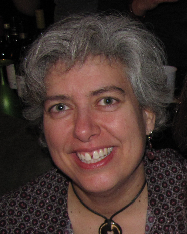There is a conversation unfolding on my social media debating whether “Pride” related topics belong in schools, specifically elementary schools. Specifically local, rural elementary schools. I have too much to say on this to try to engage with a pithy smart ass remark. So I’ll collect my thoughts here for whoever chooses to read them.
Teaching about the world is the job of schools. Teaching students to navigate in the world, to develop skills, values, perspectives that will help them navigate the world. Helping students navigate their inner world is also important and many young people don’t get nearly enough support in that regard.
Teaching about the world is also a job for parents and extended family and other community supports, spiritual communities, youth organizations and so on. Helping young people navigate their inner world is also important and, I repeat, many don’t get nearly enough support in that regard. In particular, some kids don’t get to feel safe or loved at home for who they really are.
I know some of this because I grew up in a rural farming community, surrounded by church-going folk. I attended a tiny elementary school and you can bet that in the 1970’s there was no talk of any “alternate lifestyles”. There was one way to be and by God that was what you were going to be, come Hell or high water or getting the sense beat out of you. Literally.
I consider myself lucky in so many regards to have been raised where and when I was. But I will say this. I was raised to be thoroughly dishonest with myself. I was raised to be filled with self-hatred. Because every signal, every nuance, every raised eyebrow, every derogatory remark about gay people was about me. Everyone around me hated gay people, mocked them. And I knew from a young age I was gay. So … self-hatred or exile. These were my choices.
I probably realized in my mid-teens that I was queer and I was horrified. Imagine – being horrified at something that is an essential, non-negotiable part of your being. Like being ashamed of having green eyes or brown hair or being left-handed. It just … is.
I didn’t want to lose my family so I chose to fill my inner world with self-hatred. Because being honest was far, far too frightening.
I’m trying to imagine what it would have been like had I been born more recently and attended schools where the concept of many possible life paths had been at least presented without mockery or judgement. Just … as another part of the world. Here is the world. As you navigate through it, you’ll meet queer people. Some are lovely. Some are less so – just like, oh, everyone else. Just … people.
If someone, somewhere had said something nice about gay people when I was a child, I would have had a bit of hope, a glimmer of some kind of light in the dim self-hatred that I clung to. But that wasn’t the time for such perspectives. I’m grateful that my suicide attempt at age 17 was half-hearted and easily thwarted. But it does form part of my story.
Many rural kids leave their rural origins for lots of reasons – more opportunities, post-secondary education, turning boredom into adventure. Queer kids leave their home communities when it feels safer to go than it does to stay. They leave so they can find their people. Often, that means the nearest big city. Once they have found their “tribe”, their chosen families, the people that accurately reflect back to them who they feel they really are, in honesty … coming home to the family of origin is very difficult. There is familiarity and yet there is a strange invisibility. The people that should know you best really do not. Nor, in many cases, do they wish to. Queer adults often feel like strangers amongst the people they have known and loved the longest.
So I’ve had to find my way through both the self-hatred and the exile, as it turns out. I wouldn’t wish that journey on anyone’s child and yet, again, I’m grateful. The people I’ve met, really good people. The communities and connections I’ve built. The inner strength and fortitude to handle just about anything – not an invitation, universe, back off baby – the patience I’ve had to develop to deal with truly ignorant people. These are some of the gifts of my journey.
Think of Pride in schools as a suicide prevention strategy. Here are some statistics, courtesy the Trevor Project:
- Suicide is the second leading cause of death among young people aged 10 to 24 (Hedegaard, Curtin, & Warner, 2018) — and lesbian, gay, bisexual, transgender, queer, and questioning (LGBTQ) youth are at significantly increased risk.
- LGBTQ youth are more than four times as likely to attempt suicide than their peers (Johns et al., 2019; Johns et al., 2020).
- The Trevor Project estimates that more than 1.8 million LGBTQ youth (13-24) seriously consider suicide each year in the U.S. — and at least one attempts suicide every 45 seconds.
- The Trevor Project’s 2022 National Survey on LGBTQ Youth Mental Health found that 45% of LGBTQ youth seriously considered attempting suicide in the past year, including more than half of transgender and nonbinary youth.
Removing “Pride” from schools, or children from “Pride” topics will not result in fewer queer or trans kids. It will result in children being terrified to talk to their parents and families about who they really are. “If my Mom doesn’t like Pride, I must be bad.” You won’t know that is even happening for your children until they get brave enough to tell you, probably in anger or terror, when they are adults. If they survive.
By being afraid of, or angry about, “Pride” being taught in schools, parents condemn their own children to self-hatred, possibly self-harm, and a painful choice in the future to leave to find safety elsewhere. For those kids who are not queer, you are training them to be “ok” with hating people. Just people. No better, no worse than anyone else.
Too many sad old stereotypes are being played out in my beloved Ted Lasso and it is making me sad. We are a few days away from the final episode of Season Three being released and I wish I was feeling better about it. For a show that has challenged so many tropes … it clings to a few about “my tribe”.
- Lesbian as predator. Jack’s funding of KJPR was clearly predatory, an attempt to capture Keeley. This predator role is, in reality, much more the purview of straight white men.
- Lesbians can’t have healthy relationships. Keeley/Jack was NEVER healthy, balanced or truly supportive. Meanwhile, all the other relationships in the show are modelling growth and healthy honesty, vulnerability. Apparently, lesbians can’t do that in the world of Ted Lasso. Why?
- Lesbian relationships can’t last. In fairness, Rebecca hasn’t had something last, romantically speaking.
- Straight guy will show straying woman true love. This one bothers me the most, I think, although the predatory stigma stings also. Here comes newly vulnerable, emotionally honest Roy to save the day. I like Roy. I like Keeley. I like them together. I don’t like that a feeble attempt at showing a lesbian relationship has resulted in Keeley and Roy reuniting. Meanwhile, Colin gets to be embraced and loved for who he is. Great and also … why can’t the gay woman exist happily in this universe? Why does she have to be straight again?
Just once, I’d love to see a lesbian as a hero, as strong, independent, capable, and able to partner with someone else strong, independent and capable in a healthy way. Why is this so difficult?
Answering my own question … it is difficult because men are writing the scripts and producing the work. A woman who does not need a man is a threat. We can’t have that.
We (lesbians) can’t have nice things, apparently. I await some future iteration, perhaps Theodora Lasso, Ted’s grandaughter maybe, who sets things right.
I am about eight years old and in need, in my mind, of an after school snack. My favourite, which I can manage on my own, is melted cheddar cheese on white bread. I just slice chee se, put it on bread, and pop it in the toaster oven. No sweat.
se, put it on bread, and pop it in the toaster oven. No sweat.
I have to manage on my own. There are a total of 12 people in this huge house. Mom is busy.
I’ve been thinking of this cheese snack for a while on the bus. Eagerly, I go the fridge and look at the place where cheese is kept. There is a sliver of cheddar, about two bites of cheese. No where near enough, in my mind, to manufacture my snack. Tomorrow is grocery day so this is it. I hold in my small hand the full inventory of cheese in the house.
I … lose it. This doesn’t happen often but on this particular day, I lose it. What does this look like? I’m not sure but I think I’m pretty loud. There are tears. Clearly, I’m old enough to not hurt myself with a knife or a hot toaster oven, but not old enough to get it together in the face of nutritional disappointment.
Mom appears, bustling. I’m standing with the fridge door open, holding this pathetic excuse for cheese, wailing.
Assessing the situation, Mom takes me over to the kitchen table. No anger, some reassurance, no hugs or cuddles. This is a teaching moment.
She sits at the table with two bread slices in front of her, I kneel on a chair seat, elbows on the table, to watch. I’m completely skeptical that anything good can come of this, but I’ve stopped crying.
Wordlessly, with precision and patience, Mom slices the cheese in matchstick-like slivers, producing more slivers than I would have thought possible. Then she arranges them on the bread in such a way that most of the bread real estate is covered, or it will be when the cheese melts. Moments later, I have perfect cheese toast in front of me.
I’m stunned and a bit ashamed to have made a fuss. I’m only eight but the impact of what just happened resonates deeply.
True, sometimes there is no “cheese” at all and moving forward, finding success or contentment, is hard. Disappointment is hard.
Mom taught me to step beyond the disappointment and ask a different question: What have we got to hand and what can we do with it? So often, in my life, creating a work-around has led me to a better place than my original plan would have.
I’m so grateful she was the person she was. No nonsense, pragmatic, fun. Missing her always.
My Facebook newsfeed is rife with posted articles on the recent escalation of conflict in Israel. There is a lot of commentary and passionate debate.
I am so NOT an expert on the issue or the history, although I consider myself somewhat well-read. Â In a nutshell, the British (self-appointed rulers of the Galaxy and my ancestry of origin on my father’s side) thought it was a good idea to grant the land of Palestine to a highly oppressed, ostracized group (Jews) without sufficient provision for, or acknowledgement or, or discussion with, the then occupants of that land (Palestinians). If someone tried this on my street, there would be hell to pay.
(Oh, wait … the British did try this here … and First Nations peoples are still reeling from our thoughtless and arrogant mismanagement …)
Here are three of the most thought-provoking, and heart-wrenching, articles I’ve read so far:
Israelis and Palestinians have been attacking and killing each other, literally, for as long as I can remember, and I realize now, for at least 40 years before my memories started to form. I was an avid news watcher when growing up and I distinctly recall having some child-like narcissistic fantasy about being the mediator between Golda Meir and Yassar Arafat and being able to make them see that they didn’t need to kill each other’s children anymore. Everyone could be friends … all you need is love … or something similar. After all, how can some parts of the world be so consistently peaceful and other parts be so consistently violent? We should just share some of our Canadian peacenik-ness with the Middle East and all would be well. Cue patchouli incense.
Fast forward 40+ years and, although I have long ditched the fantasy of being the wise and all-knowing mediator, the map, the patterns, the headlines … the basic gist of what is transpiring looks about the same now as it did then. I understand the complexities and chasms more, now, but the overarching specter of two ancient peoples bashing the hell out of each other looks startlingly similar to what it did on my parents’ fuzzy tv when the news came on.
The Middle East is very hot. There isn’t really enough drinkable water to go around. And many peoples hold that one piece of land is, sacredly and historically, “theirs”.
Until this last item is settled in some way that all parties can live with, literally, I doubt the map, patterns, or headlines will change significantly in the next 40 years. There is no peace-nik sensibility strong enough to blur the scars, the hurt and the tragedy of that which continues to unfold.
For what small good it does, if you believe in such things as chaos theory, I’m going to light some incense tonight. In memory of all who have died, and in faint, fragrant hope that some solution is imminent.
The Dachau Concentration Camp Memorial site is set up to educate with as much clarity and sensitivity as possible while also  memorializing the tragic brutality that this ground witnessed. There are multiple sculptures, plaques, monuments, etc. that commemorate the victims and the crimes perpetrated. Newer buildings are on site as memorials, sponsored by multiple faiths that had clergy/leaders/members in the camp, including obviously a Jewish representation but also Catholic, Protestant, and Russian Orthodox. One of the buildings is currently in use as a nunnery.
memorializing the tragic brutality that this ground witnessed. There are multiple sculptures, plaques, monuments, etc. that commemorate the victims and the crimes perpetrated. Newer buildings are on site as memorials, sponsored by multiple faiths that had clergy/leaders/members in the camp, including obviously a Jewish representation but also Catholic, Protestant, and Russian Orthodox. One of the buildings is currently in use as a nunnery.
There is no minimizing, dodging or obfuscating the role of this camp, the first concentration camp, in setting the tone for other camps. Everything that was done elsewhere started here. Given all the things I saw as testament to the crimes and death that occurred … what is really a struggle for me is understanding how vast the network of camps and sub-camps was. We were shown a map of the territories held by Germany at the peak of the war and the map was filled with literally hundreds of locations where versions of this place, in smaller and larger scales, were located. We have heard only of a handful of the usual names – Auschwitz-Birchenau, Treblinka, Bergen-Belsen, Dachau. But there were literally hundreds of camps and sub-camps. I was aghast at the breadth and scope of barbarism undertaken across such a wide geographic area.

Grave to mark ashes of thousands of unknowns (Jewish Memorial)
During my visit, it was (mostly) quiet. People were respectful and clearly there to learn, to try to comprehend, to absorb. Entrance to the site is free. I’d estimate there were a few thousand people there while I was there, so it is well used. There are lots of trees around the exterior of the camp proper, and thus lots of birds singing. That seemed out of place, as if the birds should know better. It poured rain, on and off, and that seemed entirely in keeping with the mood. Our tour group had 15 high school kids from Indiana and it was interesting to watch them go from being “too cool for this” and sort of detached to being really quite sober. I overheard discussion of the use of this memorial site for school groups and it appears that schools from all over Europe and North America make stops here. That feels like a good thing, but it does make it a bit of a challenge for maintaining the appropriate decorum when pre-teens and teens are responding to what they see with humour or (feigned) apathy. I think Dachau has an impact on everyone who visits and I think it is important for as many young people from as many different backgrounds as possible to see it – and I also think that kids don’t always know what to do with their emotional responses “in the moment”.

The Original Pink Triangle
It felt oddly synchronous to be looking at the actual original pink triangle symbol, as deployed to identify a homosexual “enemy of the state”, the day after World Pride had wrapped up in my home city of Toronto. There is no more clear reason to justify the existence of an event like “World Pride” than standing in an original building at Dachau and looking an original wall chart of symbols used to identify people, one of which was a pink triangle. Interestingly, there is a committee of survivors that has a crucial role in determining the types of memorials that will be allowed. A memorial focusing on homosexuals is absent because, in the hierarchy / social structure of the camp at the time, homosexuals were at the bottom of the barrel along with known criminals and other “asocials”. The committee of survivors isn’t comfortable acknowledging the targeting of homosexuals by approving a memorial for this group. When I spoke to our guide about this privately, he suggested that people were waiting for the committee of survivors (which is quite small now) to hand over their legacy to perhaps a more current committee with a more current perspective. I would have liked to have seen something there as an acknowledgement that gay people were one of the many groups identified as “enemies of the state” – and I also think this can wait until the time is right. Homosexuals are identified within the part of the exhibit that describes all the targeted groups, and our situation is given as much detail and focus as most of the other groups.
I took only a handful of pictures. It didn’t seem … seemly.
Dachau is just outside of Munich and the typical journey one takes to get there is from the Hauptbahnhof (main train station) in Munich. It is a short 10-15 minute ride. German citizens in Munich are extremely sensitive about people coming to visit to learn more about Nazis and about concentration camps. I knew about specific laws around giving an Nazi salute (even in jest, this will get you arrested) and I didn’t realize Mein Kampf was still a banned book. It was odd to be taking a tour with a group to specific sites relevant to WWII and to be scrutinized by the locals. They will listen and try to be sure the guide isn’t Munich-bashing or sensationalizing. Locals are also concerned with Neo-Nazis using specific sites as touchstones for their own purposes. As much as they don’t want their quite beautiful city associated with the rise of the Nazi party, as it happens, this is now a key part of the city’s past. Never mind that the PLO leveraged this association with the murders during the Olympics in 72, which adds another horrific piece to the global perception of Munich. I don’t want to suggest that Munich has had a bad rap – it is what it is – but it is a pleasant place, rich in layers of history beyond the 20th Century, walkable, reasonably friendly – I quite enjoyed it.
There are lots of very subtle, slightly subversive, commemorative elements in Munich. Many bullet holes and other types of damage have

Dodger’s Alley
been left, on purpose, unrepaired, in the architecture, like reminders. Scars. You have to look for these, but they are there. A more deliberate, striking example is a metallic (gold? bronze?) shimmering trail down the cobblestones in an alleyway known as Dodger’s Alley. In the 30’s/40’s, citizens of Munich who walked by a specific Nazi plaque on the corner of one of the main squares had to give a Nazi salute or be arrested for not doing so. There were lots of people who didn’t want to give a Nazi salute. So, to avoid walking by that plaque, many would take a detour down Dodger’s Alley. Nazi authorities caught on to this and started policing the use of the alley, interrogating people found in the alley as to their purpose for being there. If no satisfactory purpose was offered, a person would be thrown immediately into Dachau. Just for taking a detour to avoid giving a salute. Even these people were “enemies of the state”. As to the metallic trail, there is no plaque or explanation. You need to just know, or be told, why it is there and what it signifies. Apparently, there are lots of these sorts of things all over the city, commemorations of resistance. I didn’t have time to go find more, unfortunately.

Four Heros You Need to Know About
I will close by noting this plaque. It is almost hidden behind a door that leads from the gas chamber into the crematorium. (Please don’t imagine that I typed that sentence with any degree of casualness.) There is a railing in place, making it harder to get a straight on, close photo. Since it is hard to read, I’ll type out what it says here. They gave their lives – the least I can do is try to get this right.
Here in Dachau on the 12th of September 1944
four young Woman Officers of the British Forces attached to Special Operations Executive
were brutally murdered and their bodies cremated. They died as gallantly as they had
served the Resistance in France during the common struggle for freedom from tyranny.
Mrs. YOLANDE E M BEEKMAN (nee Unternahrer)
Croix de Guerre avec etoile de Vermeil
Women’s Auxiliary Air Force seconded to Women’s Transport Service (F.A.N.Y.)
Miss MADELEINE DAMERMENT
Legion d’Honneur Croix de Guerre avec etoile de Vermeil
Women’s Transport Service (F.A.N.Y.)
Miss NOORUNISA INAYAT KHAN
George Cross Member of the Most Excellent Order of the British Empire
Mentioned in Dispatches Croix de Guerre avec etoile de Vermeil
Women’s Auxiliary Air Force seconded to Women’s Transport Service (F.A.N.Y.)
Mrs ELIANE S PLEWMAN (nee Browne-Bartoli)
Croix de Guerre avec etoile de Vermeil
Women’s Transport Service (F.A.N.Y.)
“But the souls of the righteous are in the hand of God, and there shall be no torment touch them”
Bravery, compassion and a complete and utter focus on their missions, to the exclusion of all else, including their own lives. This was a surprise find towards the end of my visit to Dachau – but it shouldn’t have been. I feel like I should know these names and that I should know more about these stories. Their world, a world in which their skills and dedication were needed at extreme cost, is not that far removed from our current time of social media, popular culture, ridiculous fads and trivial pursuits.
Do not forget.
Of the three purposes of my visit to Austria (Sound of Music / WWII / Mozart), it is Mozart that has gotten short shrift, I’m afraid. I’m headed to Vienna so I expect I’ll rectify that.
The Salzburg Museum has an entire floor dedicated to the times leading to WWI, the war itself from Austria’s point of view, and the aftermath in Austria. Without knowing a bit about WWI, WWII is completely lacking in context. It isn’t until you get to that last bit about what happened to Austria, Germany and other European economies and societies after WWI that the context for the rise of the far right/Nazi movement becomes clear. The war devastated this central part of Europe. People were starving, dying and completely demoralized. They had no particular reason to hope given that the particular depression they were experiencing was underpinned by a new type of class system. Â Let me frame that differently – people who worked hard, who existed in a working class space and never expected to struggle beyond the normal challenges of life, who never had ancestors struggle without resources to be self-reliant – these are the people who were in trouble. Consider that generations prior to the industrial revolution trained men (specifically) in skills and trades passed down and valued over centuries. With the industrial revolution, people started to rely on a system not of their own choosing or making rather than relying on themselves. The system failed. In that kind of environment, any voice that comes along to blame someone else (Jews, perhaps?) for your troubles will eventually get air time.
Currently, we do see the rise of the far-right in Europe, and lots of blame-naming (foreigners, perhaps?) and a drive by some countries to isolate from the EU. It seems a relatively small movement, perhaps. Remember that Hitler was laughed off the stage the first few times he tried to get some public traction for his ideas. He had only a handful of followers, at first. But the public context for his views shifted, moreso than his views did. The times changed. The people changed. Economies all over Europe collapsed.
Now? Speaking from a North American perspective, ordinary working people have trouble finding meaningful work, the kind that both satisfies their souls and keeps them in a positive cash flow and a decent standard of living. Low-paying, low-skill jobs keep even experienced workers at entry level work, often at more than one job. Personal and public debt is rising. This makes people scared and vulnerable. Education is becoming positioned for the elite – intellectualism and scientific pursuits are seen, by some in the far-right, as oh so much nonsensical waste of time. A lack of access to education within a general population makes simple political messages have wider appeal.
We, globally, need to tread carefully at this particular juncture in time. Thanks to the recent study tour I had the crazy wonderful opportunity to be on recently, I’m understanding more the true purpose of the European Union, as complex, unwieldy and expensive as it is. The core purpose is the avoidance of war through dialogue and highly structured, regulated interdependence. The rest – economic leverage to participate in a global market, free movement of goods/services, a mobile labour force – is fine print. Â A key success factor, pardon the MBA-speak, is maintaining an internationalistic, rather than a nationalistic, perspective. Â We need to listen carefully and select out voices that seek to elevate, or isolate, one group or culture of people to the exclusion of all others. We may start hearing more such voices … and we need to remember where such sentiments can lead.
I have a lot to do today. There are work demands, with deadlines. That has to be addressed so I can tackle publisher demands this weekend, with deadlines. And there is life up here – about 18 inches of snow and ice, in layers, that need to be removed from the upper deck today before the big melt tomorrow. Otherwise, it will all melt against the brick and wood construction which can cause bad things to happen over time. Icicles have to come down so they don’t fall down and do damage.

Snow on upper deck, January 10, 2014
And I get to fetch, feed and entertain children today while Knotty Girl is off in the city, painting.
I was thinking about all this as I popped open a pair of fluffy thick socks this a.m. Popped open? What do you call it when you unfold socks that have been folded into a nice neat ball?
Anyway, the act of sock popping gave me a moment of nostalgia. There is a moment that happens in early fall most years. The moment when, after three or four months of not wearing socks, it is time to put socks on again. And it is a bit sad but also a bit comforting, the feeling of protecting feet with something soft and warm for the first time in a long time. The act of transitioning to a new season, a change of gears, as signified by socks.
I’ve just come off a time of relative calm in my work life, transitioning into what looks like a busy time. It is a gear shifting. I didn’t want the moment to pass without note.
I have fluffy socks to pop and cushion my feet. I’m ready.
There is a video making the rounds at the moment, a three minute clip from an interview about Dustin Hoffman’s experience preparing for the role of Tootsie.
Dustin’s moment of clarity
I don’t always “buy” celebrity “moments” in interviews, but this one rings true.*Â I admire him for connecting the dots with such resonance.
I had a rather personal response to this video. I lost 95 lbs over 18 months, roughly between 2008 – 2009. I held steady there for a while but gradually – with all the changes and stress – my weight has crept back up, close to where I started.
When I was losing weight, I noticed that more people talked to me. Men and women. Between having a year off work to consult independently, being in an energizing new relationship, and feeling more attractive, I was certainly projecting a happy, vibrant energy. Undeniably, it helped that I was also fitter, not just more proportional. I had more energy, more muscle shape, and I was really happy with this – especially the muscles and the cardio fitness. Happy people are more attractive people, of course. It is a non-vicious cycle.

Face Too Skinny?
I’m thinking about Dustin’s comment in his video in which he says that he wouldn’t go and talk to himself as a woman at a party, for example, because he didn’t meet his own brainwashed standard of beauty. When I say people were more interested in talking to me, this is what I mean – the simple act of choosing whom to have a conversation with in a social situation. This too is a variable, and a highly prized one in our society. Feeling attractive in these moments means feeling valued.
There was a very specific point at which, from my point of view, I became “visible” and “viable” to people around me. It was really at the point where I’d lost about 35 lbs. with ultimately 60 more to go in the overall attempt. I wasn’t “skinny” by any means but something happened in the perception of proportions that changed my look. I started wearing different clothes and that accented the change. From my perspective, the more weight I lost from this point onward, the “chattier” people got.
As I got down to my lowest weight point – still by no means “skinny” – I thought my face didn’t look quite right. Too harsh or hard, perhaps? The photo here is at close to my lowest weight.
My life has changed enormously since this time. New routines are hard to establish and maintain, especially given the amount of driving I have been doing. All the changes have taken an emotional toll on both Knotty Girl and myself. When there are stressors and demands, I’m not programmed to run to the gym and sweat it off. I’m programmed to consume foods that I shouldn’t. Thus, in all of the hubub, the weight has almost all come back and I don’t look like this anymore. I’ve certainly been conscious of this trend, I’ve felt a bit powerless about it, and I have tried to note at what point I appeared to fade from visibility, generally speaking. At what point am I less likely to be the person spoken to at the party? Not surprisingly, it was right about at gaining 60 of the lost 95 lbs back. So, in other words, there is something magical in terms of the perception of the exterior self that happens right about at that fulcrum point.
This is a non-scientific experiment of course. The other variables – like my own moodiness or sleep deprivation or what have you – are hard to account for. My own sense of feeling less confident, less sure-footed in my new roles at home and in the ever-changing tides at work, hasn’t helped.

Biceps of Future/Past
If I were talking to Dustin about this, I’d tell him not to feel too hard on himself. We are all subject to the “physical attractiveness brain washing”, both men and women. We look at ourselves and judge. We look at others and draw conclusions, often within seconds. I know I do it. The trick is to become self-aware of this behaviour and to try to manage it somehow. I remember hearing Susie Bright say something like this (apologies for inaccurate paraphrasing): the most interesting person in the room is the least “attractive” one because they have to work their other skills – charm, humour, sexiness, intelligence – to gain ground lost by not being “attractive”.
So now what? When I reflect back on the weight loss adventure, I’m remembering how good it felt to be strong and fit. I’m going to aim for that. I’m not sure I’m going to even weigh myself, although those numbers are good guideposts. I’m not aiming to raise my visibility, per se, to anyone but myself. I’ll know I’m getting somewhere when I can walk nine holes without huffing, skate three periods without collapsing, and find myself admiring the curve of my own biceps.
*It is hard to view Dustin’s reference to his conversation with his wife, Lisa Hoffman, without a sense of irony.
Recently, I have had occasion to have several windows open in my operating system as I attempt to achieve some kind of productivity. In addition to having two monitors on in my home office, from time to time, I may also have my work laptop open on a separate desk behind me, displaying yet more programs or activities. As I work my way through my to-do list, I am aware of how I’m “matrixing” my time, as a former boss used to call it. I will work away at one project and will need to wait for a screen to refresh, or for a distant server to respond to a request. This causes me to bump over to the next task, or screen, (or Spider Solitaire) and continue working away at what had been going on there before needing to wait for something to happen.
Thus, one modern version of “multi-tasking” has been born from all the forced “waiting” that our otherwise lightning fast computer systems impose upon us.
Much of what I need to accomplish depends on the speed and reliability of my Internet connection, and the speed and reliability of remote systems, be that a remote webmail server or a remote learning management system server or a remote software application server. As we move more and more of our computing power to the cloud, we will inevitably experience greater wait times. I don’t care what the hype says about solid state servers or increased bandwidth to the masses. Working remotely might get faster but it won’t be as fast as it would be if all the processing were happening right here on my desk. In any case, many of us have chosen to fill those wait times with Spider Solitaire productive activity working on the next task while we wait for the results of our previous task to take effect.
Add to this multiscreen, multitasking behaviour the constant presence of our new appendage – the mobile device with all its apps. We are all mental and cognitive jugglers with – dare I say it – a plethora of virtual balls.
We are evolving into a de facto multitasking workforce and I think this is simultaneously expensive and not very productive. A lose/lose situation. We are told by experts that single-tasking is really the only productive way to work. Multitasking is a fallacy, existing really as a series of single-tasking events in sequence. (Here is an article about this. Here is another one. Take your pick.)Â As our brains attempt to manage the switching costs, paid out in loss of cognitive function, of repeatedly leaving one task unfinished in favour of proceeding to continue on with the next incomplete task, we lose time, energy and the ability to synthesize complex ideas.
The actual cost? Although this is a vast generalization, we are losing the ability to focus deeply and think creatively. I think this is a huge loss and I do see this loss on a grand societal scale. It takes time to consider and reflect on our lives, our families, work, passions – all the elements that make up for a balanced way of living. We are, collectively, moving away from being a thoughtful society and into being a busy society in which ADD behaviour is rapidly becoming normative behaviour.
Real creativity, real revelation, true innovation – these valuable and expected outcomes of “successful societies” – these traits can’t arise out of a society that can’t focus long enough to complete one task well, from beginning to end. If our political leaders wish to be truly focused on closing an innovation and/or productivity gap, I would strongly urge them to consider working on forging some new cultural expectations on what true productivity looks like. It doesn’t look like “always being busy”. It looks like “producing well-thought-out, well-planned, quality output”. We need to reward thoughtful behaviours, single-tasking, creative and artistic endeavours, and any type of task that requires focus and clarity of thinking. And I think we need to pay attention to this sooner rather than later, before we devolve into a jumble of tales, told by idiots, full of sound and fury, and signifying nothing.*
*Macbeth (Act 5, Scene 5, lines 26-28) Wanna bet that Shakespeare would have had only one screen open at a time?
Today seems to be all about the light.
I have just pulled away from having my headlight bulbs replaced in my car as they were inadequate for deep, dark, rural nighttime driving. While that was being done, I managed to find a powerful rechargeable spotlight/flashlight on sale which will allow all of us to go owling in our deep, dark, rural winter evenings. As I’m driving into the city this morning, it feels like a beautiful spring day although, in fact, it is a beautiful January day. The quality of the light hitting the vistas before me makes the world seem to glow. This type of day reminds me of the kind of spring day I remember growing up on the farm, with the sun thawing out the soil. You can smell everything loosening up and getting ready to grow. I loved this kind day as a child and I’m looking forward to experiencing this yet again when real spring hits in a few months.
Today is also about the light because I am on my way to a funeral. We have lost a bright and beautiful colleague to cancer and it has taken us all a bit by surprise. Although I didn’t know her well, Sue struck me as being one of the most positive people I know at work. She was upbeat, always, and the picture of health and wellness. Most of our conversations revolved around diet, exercise, living well and loving life. It is a bit of a shocker that cancer claimed her so quickly and completely. It feels important to respect and acknowledge this very bright light having left our particular corner of the world although, knowing Sue even the little bit that I did, I don’t think she would be interested in having us wander around in despair. I think she would want us to have a glass of wine, a good meal and a good dance party.
This light we have lost makes me reflect on the kind of legacy that I might be leaving behind one day, hopefully far in the future. I pause to wonder whether everything I’m putting the world is as positive and as straightforward as it could be. I wonder if I allow my inner demons to shout down my better angels. I fear that the answer, all too often, is “yes”. I over-think things, I over-analyze, and I make situations far more complicated than they need to be. I get lost in it sometimes, as one might in a deep, dark, rural night without good headlights or a decent flashlight. I don’t think it is possible for me to be a relentlessly positive and cheerful person, and I think my analytical skills are valuable at times, yet I think I can do better at not getting so lost. At curbing my tendency to wallow with my demons rather than celebrating with my angels.
Although I didn’t make specific New Year’s resolutions, I am going to take this opportunity to commit to dancing more and wallowing less. To celebrating that which is right in my world rather than highlighting that which is not right. To remembering that light exists, somewhere, even when I’m lost in the dark.

 memorializing the tragic brutality that this ground witnessed. There are multiple sculptures, plaques, monuments, etc. that commemorate the victims and the crimes perpetrated. Newer buildings are on site as memorials, sponsored by multiple faiths that had clergy/leaders/members in the camp, including obviously a Jewish representation but also Catholic, Protestant, and Russian Orthodox. One of the buildings is currently in use as a nunnery.
memorializing the tragic brutality that this ground witnessed. There are multiple sculptures, plaques, monuments, etc. that commemorate the victims and the crimes perpetrated. Newer buildings are on site as memorials, sponsored by multiple faiths that had clergy/leaders/members in the camp, including obviously a Jewish representation but also Catholic, Protestant, and Russian Orthodox. One of the buildings is currently in use as a nunnery.





